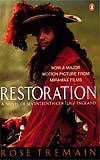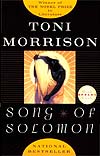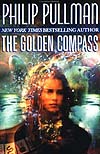
Little House in the Big Woods
By Laura Ingalls Wilder
This marked the start of my love affair with books. A fictionalization of Wilder's life with her family in a log cabin in 19th-century Wisconsin, the Little House series utterly captured my imagination. We started a Laura Ingalls Wilder club at my local library, and I was its most enthusiastic member. I—and I suspect most girls— particularly identified with Laura, the feisty heroine, who was always getting into trouble (unlike her perfect older sister, Mary). Once, Laura collected so many pretty stones from a lakeshore that her bulging dress pocket fell off and she was scolded for being greedy. I could totally relate to that, and I was also fascinated that a dress pocket could come off. It was the first time I connected with a world very different from my own.
By Laura Ingalls Wilder
This marked the start of my love affair with books. A fictionalization of Wilder's life with her family in a log cabin in 19th-century Wisconsin, the Little House series utterly captured my imagination. We started a Laura Ingalls Wilder club at my local library, and I was its most enthusiastic member. I—and I suspect most girls— particularly identified with Laura, the feisty heroine, who was always getting into trouble (unlike her perfect older sister, Mary). Once, Laura collected so many pretty stones from a lakeshore that her bulging dress pocket fell off and she was scolded for being greedy. I could totally relate to that, and I was also fascinated that a dress pocket could come off. It was the first time I connected with a world very different from my own.
The Necklace
By Guy de Maupassant
This short story has a killer twist at the end: A woman borrows a diamond necklace, loses it, and ruins her life replacing it, only to discover years later that the diamonds weren't real. It's so exquisitely painful. I read this as a teenager, and it was a lesson in how important a strong story line is. I like to read (and write) books where you just have to keep going to find out what happens, and when you finish, you want to think back over the whole plot.
By Guy de Maupassant
This short story has a killer twist at the end: A woman borrows a diamond necklace, loses it, and ruins her life replacing it, only to discover years later that the diamonds weren't real. It's so exquisitely painful. I read this as a teenager, and it was a lesson in how important a strong story line is. I like to read (and write) books where you just have to keep going to find out what happens, and when you finish, you want to think back over the whole plot.

Restoration
By Rose Tremain
If I hadn't read this book, I would probably not be writing historical novels today. I used to be terrified of history—I got dates wrong, I couldn't remember which king fought in which battle. With this novel, Rose Tremain blew the dust off the subject for me, making her hero, Robert Merivel, such a lusty, irreverent, genuine character that I could easily imagine having a drink with him in a London pub. He becomes a favorite of King Charles II but makes the mistake of falling in love with the wrong girl and tumbles from grace. It's a rollicking, heartbreaking tale with an irresistible protagonist. It showed me that historical novels can build bridges between the past and the present without being stuffy or alienating.
By Rose Tremain
If I hadn't read this book, I would probably not be writing historical novels today. I used to be terrified of history—I got dates wrong, I couldn't remember which king fought in which battle. With this novel, Rose Tremain blew the dust off the subject for me, making her hero, Robert Merivel, such a lusty, irreverent, genuine character that I could easily imagine having a drink with him in a London pub. He becomes a favorite of King Charles II but makes the mistake of falling in love with the wrong girl and tumbles from grace. It's a rollicking, heartbreaking tale with an irresistible protagonist. It showed me that historical novels can build bridges between the past and the present without being stuffy or alienating.

Song of Solomon
By Toni Morrison
I read this book, about a young African-American man coming to terms with his family history, in a college English class. It's suffused with magic—people flying, women without belly buttons—that should be ridiculous but instead somehow makes perfect sense. Morrison is such a sensual writer, and she uses strong images that resonate with myth. Twenty years later, I can still picture the first scene—of a man with blue silk wings who jumps off a building, and a pregnant woman who drops red velvet rose petals onto the snow as she watches him, and another woman in the crowd who sings a song that in the end is the key to the story.
By Toni Morrison
I read this book, about a young African-American man coming to terms with his family history, in a college English class. It's suffused with magic—people flying, women without belly buttons—that should be ridiculous but instead somehow makes perfect sense. Morrison is such a sensual writer, and she uses strong images that resonate with myth. Twenty years later, I can still picture the first scene—of a man with blue silk wings who jumps off a building, and a pregnant woman who drops red velvet rose petals onto the snow as she watches him, and another woman in the crowd who sings a song that in the end is the key to the story.

His Dark Materials Trilogy: The Golden Compass, The Subtle Knife, and The Amber Spyglass
By Philip Pullman
Some books I just devour. I think about them all the time, read them during every spare minute, and am bereft when I finish them. It's kind of like being in love. I read The Golden Compass fast and feverishly, as if I were sick. I loved it so much that I vowed not to read Pullman's next book for at least a month in order to ration the pleasure. I lasted two days then gulped down the second and third books in a frenzy.
The trilogy unabashedly grapples with moral questions in a way few contemporary novels dare to. It's about two children who learn to defend human beings' right to leave behind innocence and gain experience. Set in a stunningly imagined world made up of past, present and future elements, the trilogy demonstrates the limitations of the labels "fantasy," "science fiction," and "children's writing," and carves out its own place as a modern classic. Lord of the Rings, move over—your seat has been taken!
By Philip Pullman
Some books I just devour. I think about them all the time, read them during every spare minute, and am bereft when I finish them. It's kind of like being in love. I read The Golden Compass fast and feverishly, as if I were sick. I loved it so much that I vowed not to read Pullman's next book for at least a month in order to ration the pleasure. I lasted two days then gulped down the second and third books in a frenzy.
The trilogy unabashedly grapples with moral questions in a way few contemporary novels dare to. It's about two children who learn to defend human beings' right to leave behind innocence and gain experience. Set in a stunningly imagined world made up of past, present and future elements, the trilogy demonstrates the limitations of the labels "fantasy," "science fiction," and "children's writing," and carves out its own place as a modern classic. Lord of the Rings, move over—your seat has been taken!




